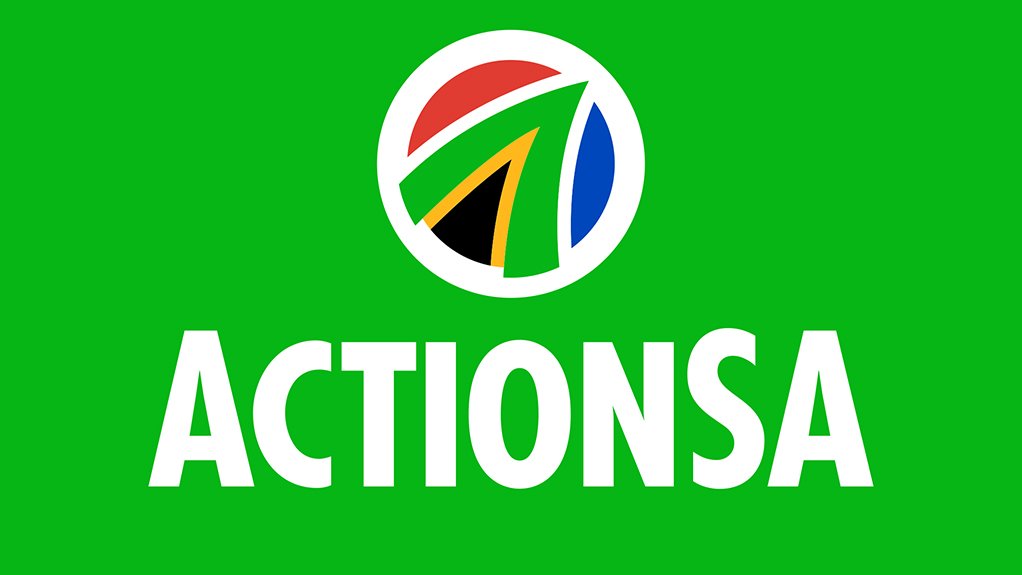/ MEDIA STATEMENT / The content on this page is not written by Polity.org.za, but is supplied by third parties. This content does not constitute news reporting by Polity.org.za.
Last week Executive Mayor, Councillor Mpho Phalatse, raised concerns through a statement about a perceived inequity in pothole repairs in the different regions of Johannesburg.
This was done publicly and surprised many who recognised the factual errors in the statement and its coinciding with the roads’ teams having exceeded their targets for the first time in years (repairing 23 298 potholes out of a target of 17 965). In addition to this, the service delivery blitz campaign completed 19 502m² of road patching. This is the equivalent of an additional 78 008 potholes repaired in just four months of A Re Sebetseng – unmatched in past performance of JRA.
As a partner within the multi-party coalition, ActionSA will not be roped into the internal politics of the DA whose past leaders criticised Mayor Phalatse last week for appearing at a planning session rather than repairing potholes. Our focus lies on delivering services.
Measuring relative effort in the different regions based solely on rands spent on pothole repair is both simplistic and politicking with a serious service delivery issue. On its own, pothole repair is a poor measurement of relative effort to improve the road condition of an area. It must be looked at in conjunction with road resurfacing, road reconstruction and stormwater drainage. Each of these interventions have much larger relative budgets because they produce a permanent fix.
Together, these measurements demonstrate how much is being done to improve the road condition. It is also simplistic to compare one region to another when they differ vastly in terms of their size, kilometres of roads, existence of stormwater drainage and relative age of the road network.
For example, pothole repair is futile to roads that are very old and have degraded to the foundation layer, because the pothole would reoccur immediately in the rainy season. Such a road could only be repaired through road resurfacing or reconstruction. While work is underway to complete the regional allocations, it has always been a pattern in the City that road resurfacing and reconstruction is favoured over pothole repair in the older road networks that are prolific in regions B (Randburg) and E (Sandton and Alex).
No two regions are alike in our City. Some regions are significantly under-developed than others, therefore requiring significantly more work. The amount of work done in the various regions is a function of several factors, including size, as I indicated earlier. Regions F, G and D are vast in geography. Region D has 38 wards while the size of Region F necessitated that it be split into two: Region F1 and F2. The state of the infrastructure in Soweto (Region D) simply cannot be compared with that in Sandton. Ward 77 in Region A is home to 59 gravel roads - possibly the largest number in the City.
In Region D alone, 11 different stormwater infrastructure projects will be undertaken over the next financial year compared to a combined 11 in Regions E and B. This will not be enough to overcome the challenges Region D has with stormwater infrastructure, but this is the reality of working within a constrained budgetary environment.
Equitable service delivery can never mean that, if 9 207 potholes are repaired in Region D, the equivalent number of potholes ought to be repaired in either Region E or B, in order to create the impression of some sort of balance. The needs are simply not the same.
The challenge of Johannesburg’s Road Condition Index is well known to motorists who have had to endure a particularly bad rainy season. This arose to worsen the more than 4000km of roads inherited by the multi-party coalition which are in poor or very poor condition. It was a worst-case scenario for the multi-party coalition to emerge into one of the heaviest rainy seasons to date which both worsened the condition of our roads and reduced the number of days in which road repairs could be affected.
Having said this, with the rainy season now behind us, our regional operations is also now back on a full-time basis after having to do routine maintenance with only a third of its workforce for almost two years due to Covid-19 regulations. The teams are geared up to deliver the biggest winter road repair programme in the history of the City of Johannesburg.
Within the coming weeks, I will ensure that JRA produces its plans within the newly approved budget for improving our road network and present these plans to the residents of Johannesburg.
This will be done for residents to have confidence in an improving road network regardless of geographical or political considerations.
Issued by ActionSA Caucus Leader in Johannesburg Funzi Ngobeni
EMAIL THIS ARTICLE SAVE THIS ARTICLE ARTICLE ENQUIRY
To subscribe email subscriptions@creamermedia.co.za or click here
To advertise email advertising@creamermedia.co.za or click here











